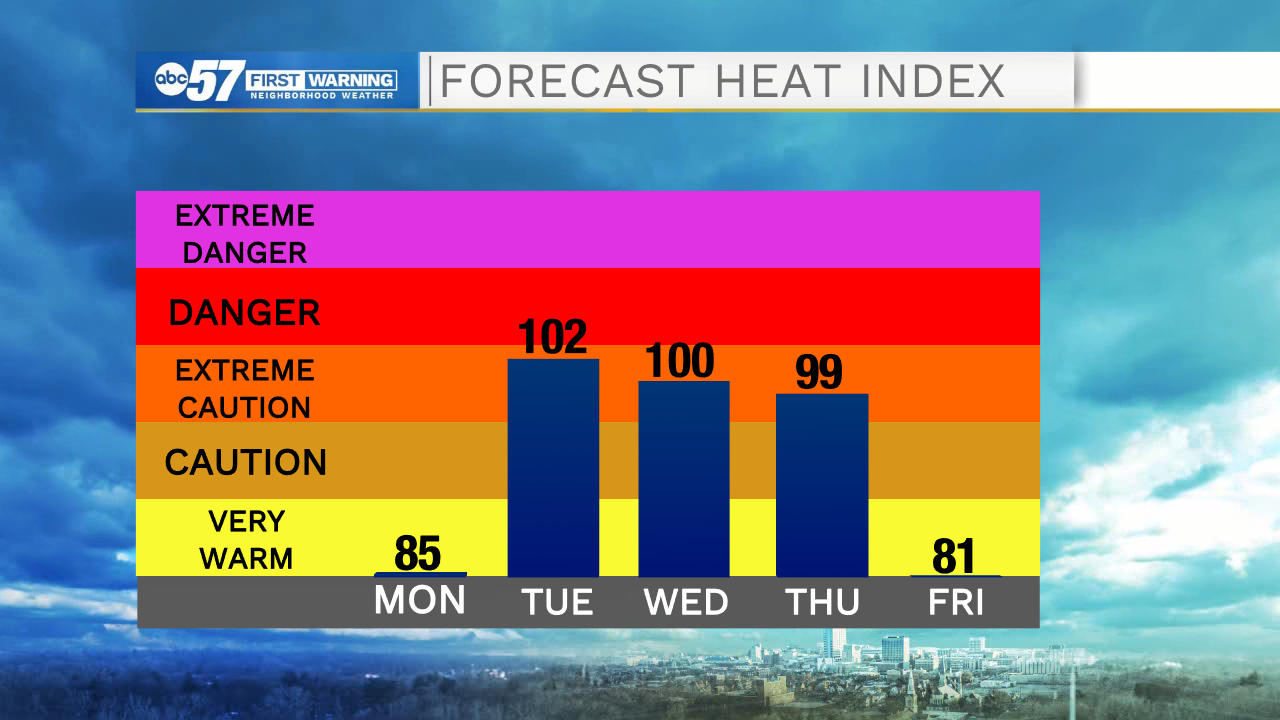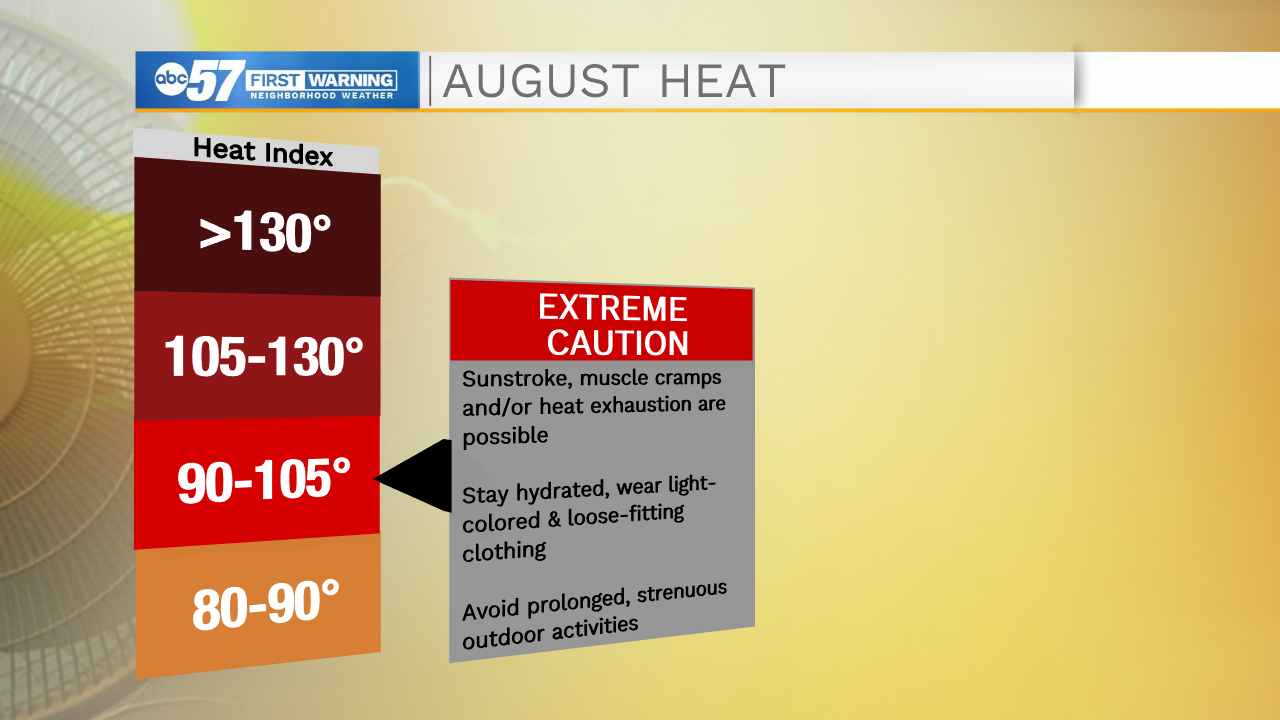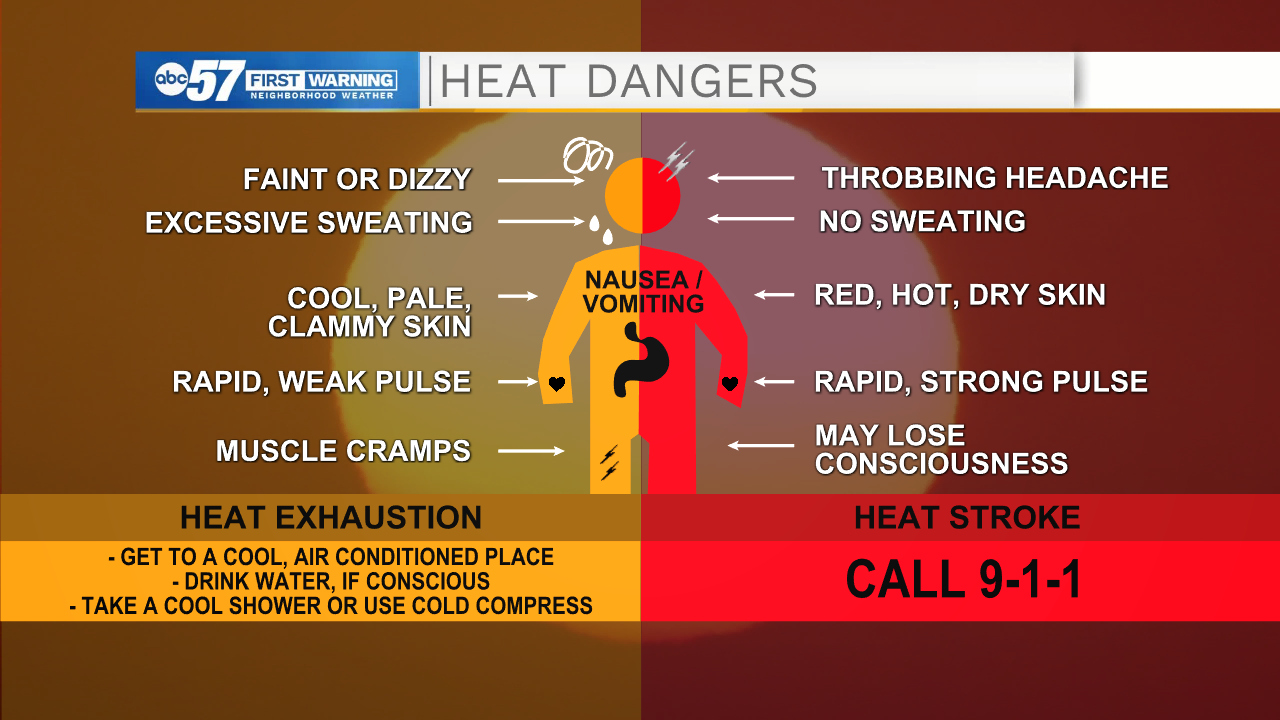We're in for a toasty week in Michiana. Do you remember the heat illness signs to watch for in your body?
Anytime heat indices climb into the mid 90s, heat exhaustion or heat cramps are possible. When your body is working hard to cool down, it can sometimes overheat.
Heat cramps are the first sign that your body is getting too hot outdoors. You'll notice painful cramps or spasms. You'll likely be sweating more in this stage. You can treat this pretty easily. Drink some water and go into a cooler location (like air conditioning or the shade).
More concerning is heat exhaustion. At this stage, you'll still notice a lot of sweating. Your skin may be pale or feel cool to the touch. Nausea or dizziness may start to set in. Heat exhaustion can be treated in the same way as heat cramps. An additional step is to take a cool bath or put a wet cloth on your skin.
The most dangerous heat illness is heat stroke. Luckily, it may not get hot enough this week for heat stroke to develop, but watch for it nevertheless.
Danger signs are when your body stops sweating, or if your skin turns red and hot. You may pass out if you experience this. Heat stroke is a serious medical emergency, and you should call for help or go to a hospital once you recognize the symptoms.
If someone you know may have heat stroke, you can still move them to a cooler location. However, don't give any water or other drinks to try to cool them down.
These heat illnesses can be avoided if you play smart during these hot days.
You can still go outdoors, but avoid being outside at the hottest part of the day. Remember that anything you or your kids touch (like playground equipment) will be very hot with these temperatures.
Don't overexert yourself when it gets hot (probably not the best day to run a marathon or mow the lawn).
Stay cool by wearing loose-fitting, light colored clothing. Remember your sunscreen and a hat to protect your skin and keep it cool.
If you have to stay outdoors for a long period of time, maybe for work, take lots of breaks to cool down. Go into the shade or an air conditioned building if you can.
Finally, stay hydrated. If you know you'll be outdoors on a hot day, start drinking water before you go outdoors.
Remember to take care of yourself, and check in on your neighbors who don't have air conditioning or have health concerns this week.

















